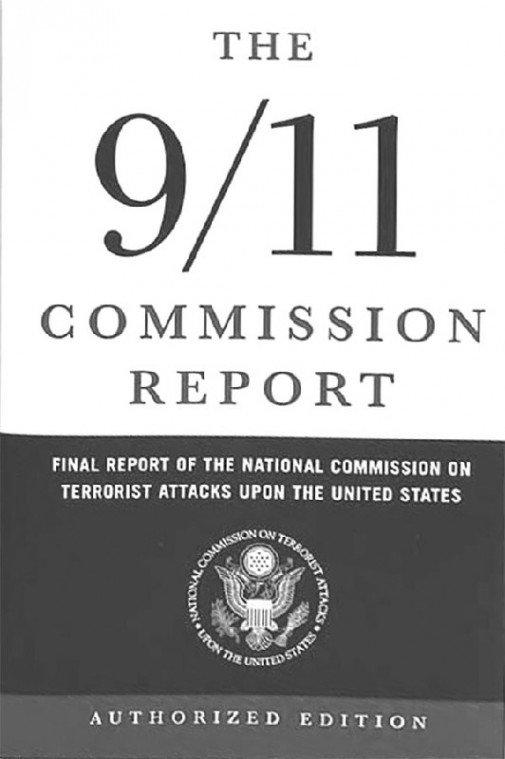All the authors vying for this year’s National Book Award in
nonfiction are finalists for the first time
– including the U.S. government.
”
The 9/11 Commission Report
”
beat out such critically acclaimed books as
”
Alexander Hamilton,
”
by Ron Chernow, for a place among the top five. The Christian
Science Monitor reviews the nominees:
All the authors vying for this year’s National Book Award in nonfiction are finalists for the first time – including the U.S. government. “The 9/11 Commission Report” beat out such critically acclaimed books as “Alexander Hamilton,” by Ron Chernow, for a place among the top five. The Christian Science Monitor reviews the nominees:
ARC OF JUSTICE, by Kevin Boyle, Henry Holt, $26
Most white Americans know little about the black American experience between the imposition of Jim Crow laws after the Civil War and the Brown v. Board of Education decision that began to unravel these laws in 1954. In “Arc of Justice,” Boyle uses a single 1925 court case in Detroit to help fill in that huge blank. Writing with the immediacy of a journalist and the flair of a novelist, he’s produced a history that’s at once an intense courtroom drama and an engrossing look at race in America. When a black physician, Ossian Sweet, moved his wife and child into a white neighborhood of Detroit, he knew there could be trouble. The early 1920s had seen the lynching of dozens of black men around the country. Sweet had prepared by rounding up 10 black men and several guns inside his home. When a crowd gathered the evening of Sept. 9, 1925, and began to pelt the house with rocks, shots were fired from a second-floor window. On the street below, one man lay dead and another wounded.
– Gregory M. Lamb
WASHINGTON’S CROSSING, by David Fischer, Oxford University Press, $35
“No single day in history was more decisive for the creation of the United States than Christmas 1776,” James MacPherson writes in an introduction to “Washington’s Crossing.” Many of us, if we have any sense of Washington crossing the Delaware at Christmas 1776, have only a vague memory of Emmanuel Leutze’s painting showing an impossibly overcrowded little boat, in which the commander stands foolishly if heroically erect. This utterly engaging book, combining men on horseback with the larger social context, brings that moment alive. It turns out that that painting was a remarkably good representation of what actually happened. Less than six months after the signing of the Declaration of Independence, the American cause appeared to have collapsed, after a retreat from New York City that was the low point of Washington’s career.
– Ruth Walker
LIFE ON THE OUTSIDE, by Jennifer Gonnerman, Farrar, Straus, and Giroux, $24
On Jan. 26, 1984, Elaine Bartlett was sent to prison for 20 years to life – an astoundingly long sentence considering it was her first arrest, for a relatively minor crime: the sale of four ounces of cocaine. The strict Rockefeller drug laws had recently gone into effect, mandating long minimum sentences. The fact that she left behind four young children, or that an informant for the police had talked her into carrying the cocaine, made no difference; she never even got to speak at her trial. Through Gonnerman’s intimate portrayal, Elaine’s story is finally told: her childhood, her years in prison, and her struggle on the outside once she was granted clemency in 2000.
– Amanda Paulson
WILL IN THE WORLD, by Stephen Greenblatt, W.W. Norton, $26.95
One of the enduring mysteries in literary history is how a bright but unsophisticated Stratford lad, within relatively few years, became the supreme writer in the English language. Greenblatt explains this extraordinary phenomenon with comprehensive evidence, skillful argument, and gracefully supple style. A consultant for the popular movie “Shakespeare in Love,” he is also a professor at Harvard University and general editor of the Norton Shakespeare. He scrutinizes the relevant historical events and the known facts of Shakespeare’s life to inform and illuminate our understanding of the plays. Each chapter pursues historical accounts; religious, legal, and literary documents; known Shakespearean sources; scraps of letters, reminiscences, and recorded gossip.
– Norman A. Anderson
9/11 COMMISSION REPORT, National Commission on Terrorist Attacks, W.W. Norton, $19.95
The 9/11 Commission Report is maybe the most gripping government document produced in Washington in the past 40 years. The committee of five Republicans and five Democrats reviewed millions of pages of documents, interviewed more than 1,200 people in 10 countries, and took public testimony from 160 witnesses. Their final report offers a thorough narration about how the attacks were organized, what happened as they occurred, and how foreknowledge of the terrorists’ plans eluded top officials. Its heart is a series of chronologies. Readers can track the radicalization of hijacker Mohammad Atta, the whereabouts of Vice President Dick Cheney on 9/11, and the performance of fire radios in the World Trade Center.
– Peter Grier














